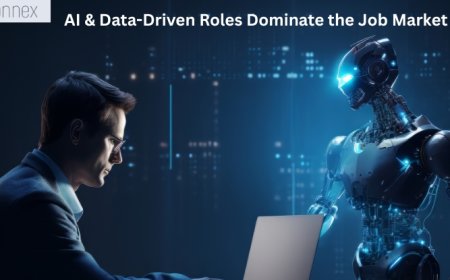AI & Automation: The Future of Jobs
As artificial intelligence and automation continue to evolve at breakneck speeds, they are reshaping industries and redefining the way we work. While many fear job displacement, history shows that technological revolutions also pave the way for new opportunities and career paths.

The Evolution of AI and Automation
Over the past decade, breakthroughs in machine learning, robotics, and data analytics have transformed sectors ranging from manufacturing to healthcare. Today’s AI systems are not only automating routine tasks but are also assisting in complex decision-making, leading to more efficient operations across industries.
Impact on Industries and Job Roles
- Manufacturing & Production: Automation streamlines production lines, reducing errors and increasing productivity.
- Customer Service & Support: AI-powered chatbots and virtual assistants are handling basic inquiries, allowing human agents to focus on more intricate issues.
- Healthcare: AI aids in diagnostics, personalized treatment plans, and even robotic surgeries, ultimately enhancing patient care.
- Finance: Automated systems analyze vast amounts of data to detect fraud, optimize portfolios, and support customer interactions.
The integration of AI is reshaping job roles. While some tasks are becoming automated, new roles are emerging that require advanced technical skills and human creativity.
Embracing Change: Upskilling and Reskilling
For workers, the key to thriving in an AI-driven world is adaptability. Emphasizing continuous learning and acquiring new digital skills can help professionals transition into roles that technology complements rather than replaces.
- Technical Skills: Learning coding, data analysis, and machine learning fundamentals can open doors to tech-centric positions.
- Soft Skills: Critical thinking, problem-solving, and emotional intelligence remain vital, as they cannot be easily automated.
Organizations and educational institutions play a crucial role in facilitating training programs and workshops that bridge the skills gap, ensuring a smoother transition for the workforce.
Emerging Opportunities and Challenges
Opportunities:
- New Career Paths: From AI ethics and data science to robot maintenance and cybersecurity, the demand for specialized roles is on the rise.
- Innovation in Services: As mundane tasks become automated, creativity and innovation can flourish, leading to the development of novel products and services.
Challenges:
- Job Displacement: Some traditional roles may diminish, leading to short-term employment challenges in certain sectors.
- Income Inequality: There’s a risk of widening the gap between high-skill and low-skill workers if upskilling opportunities aren’t accessible to all.
- Ethical Considerations: The integration of AI raises important questions about privacy, bias, and the ethical use of technology.
Preparing for the Future
To harness the potential of AI and automation, both individuals and organizations must foster a culture of lifelong learning and innovation. Governments and private sectors alike can contribute by:
- Investing in education and technology training programs.
- Creating policies that support workforce transitions.
- Promoting public-private partnerships to drive innovation and ethical practices.
Conclusion
AI and automation are not just trends—they represent a fundamental shift in how we work. By embracing change, continuously learning, and adapting to new technologies, we can unlock exciting opportunities and shape a future where technology empowers rather than replaces human talent.






























































































